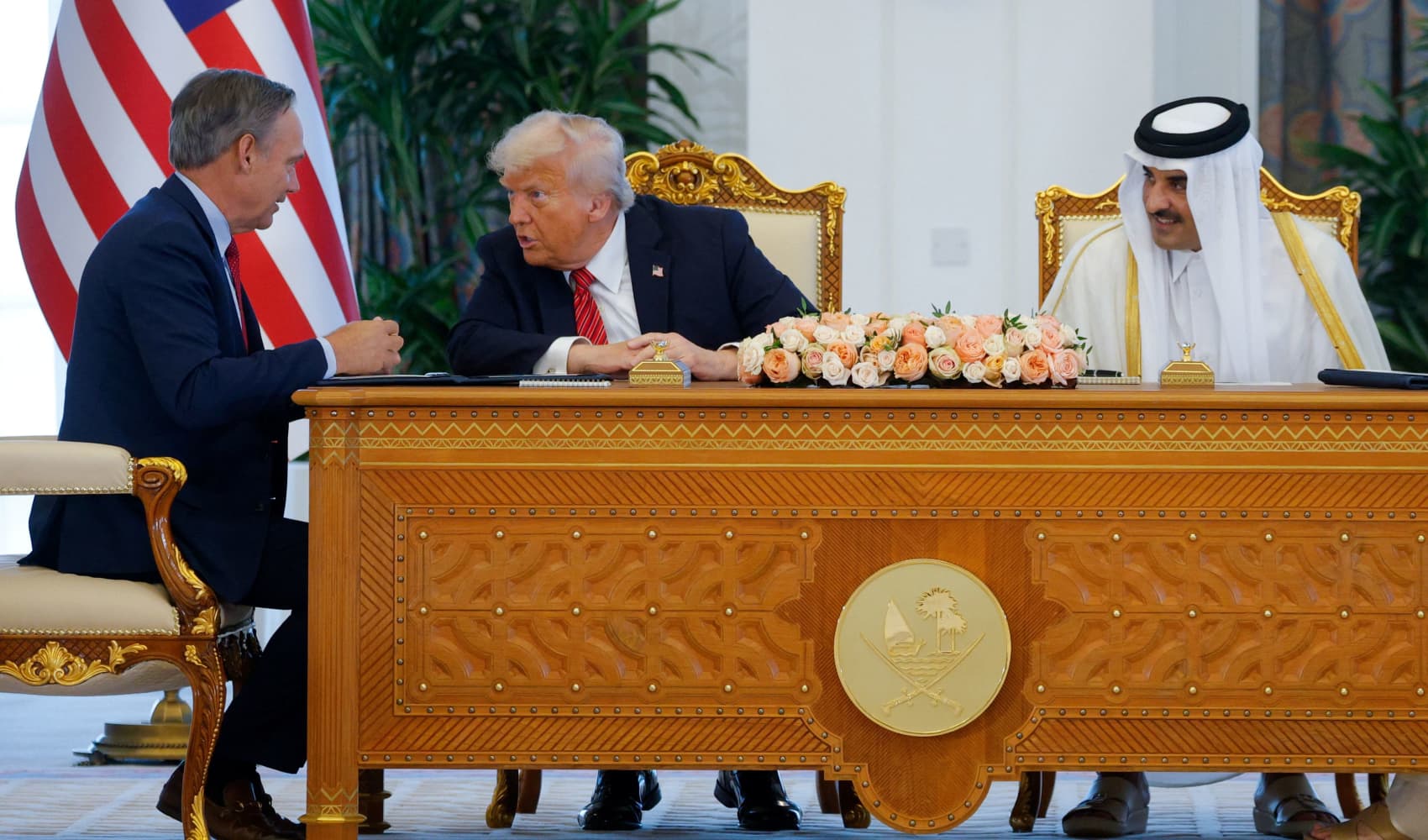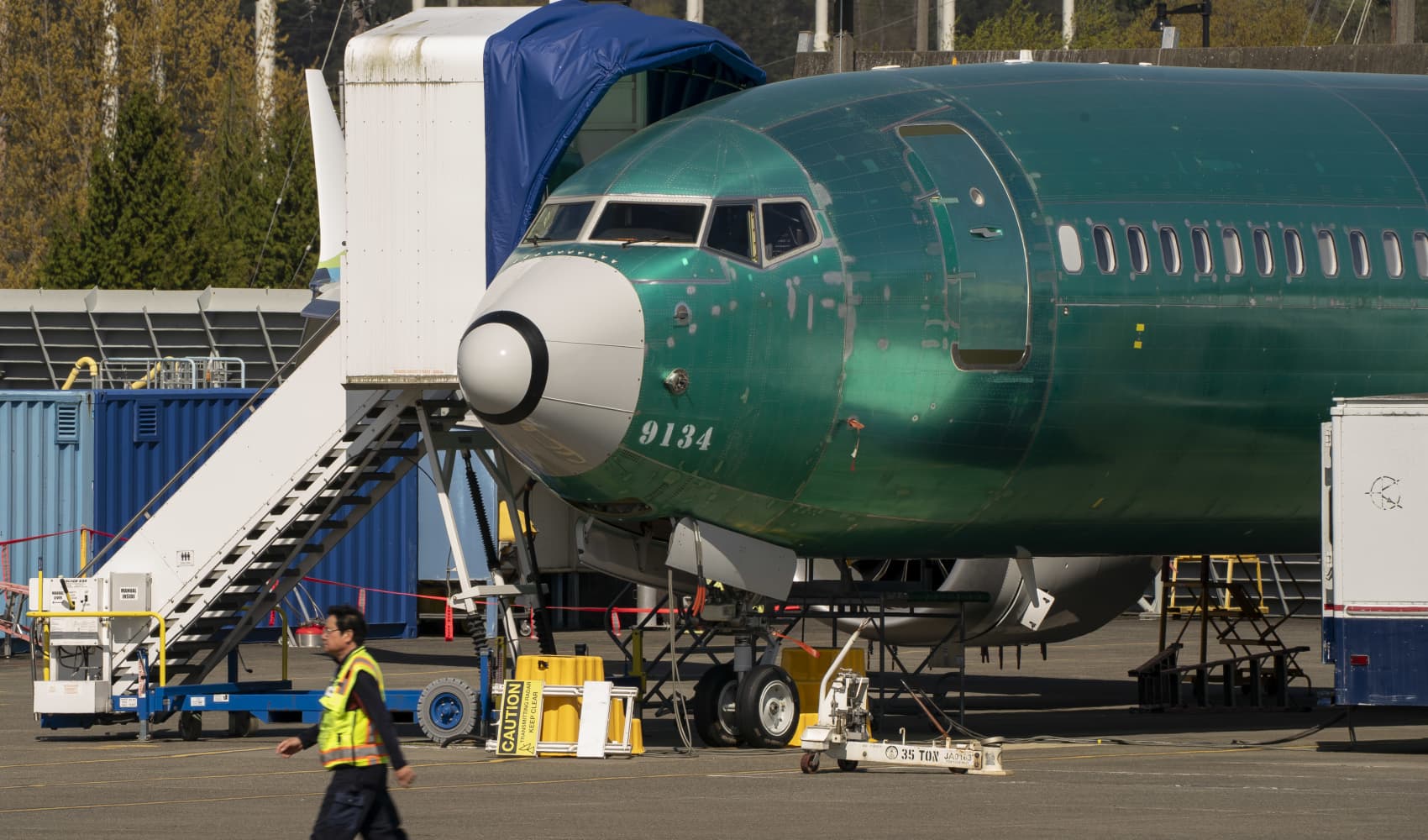Qatar's Air Force One Gift: Trump Blames Boeing Delays!
Qatar's Air Force One Offer: Trump Blames Boeing for "Nice Gesture"
Introduction: A Presidential Upgrade, Courtesy of Qatar?
Imagine this: You're the President of the United States, and your ride, Air Force One, is getting a little long in the tooth. What do you do? Well, if you're Donald Trump, and Qatar offers you a brand new Boeing 747, you might just call it a "very nice gesture." But is it really that simple? Let's dive into the story behind this surprising offer and the Boeing delays that Trump claims are to blame.
Air Force One: More Than Just a Plane
Before we get into the nitty-gritty, let's remember what Air Force One actually *is*. It's not just a fancy airplane; it's a symbol of American power and prestige. Think of it as a flying White House, capable of conducting business and showcasing American innovation on a global scale.
Why the Need for a New Air Force One?
The current Air Force One planes (two specially configured Boeing 747-200Bs, designated VC-25A) have been in service for over 30 years. While they're meticulously maintained, they're reaching the end of their lifespan. Think of it like your old car – eventually, even with regular maintenance, it starts to show its age. Newer models offer better fuel efficiency, updated technology, and enhanced security features.
Qatar's Generous Offer: A "Very Nice Gesture"?
So, what exactly happened? According to Trump, Qatar offered to provide a Boeing 747 to serve as Air Force One. He called it a "very nice gesture," implying a willingness to accept the offer. Was it a genuine act of goodwill, or were there other motives at play? That's the million-dollar question (or, more likely, the billion-dollar question!).
Details of the Qatari Offer: What We Know (and Don't Know)
The specific details of the offer remain somewhat unclear. Was it a gift? A loan? A potential sale? Without official confirmation from Qatari or U.S. government sources, we're left to speculate. It's also unclear what type of 747 was offered. Knowing these details is critical to understanding the true value and implications of such an offer.
Trump's Boeing Blame Game: Delays and Disappointment
Trump didn't mince words, placing the blame squarely on Boeing for the delays in building the new Air Force One. "I think what happened with the plane is that we're very disappointed that it's taken Boeing so long to build a new Air Force One, we have an Air Force One that's 40 years old," he stated. His frustration highlights the significant cost and time overruns often associated with large-scale government projects.
Boeing's Response: A Timeline of the Delays
Boeing has faced various challenges in the Air Force One program, including technical difficulties, supply chain disruptions, and even disagreements over design specifications. Pinpointing the exact cause of the delays is complex, but it's clear that the program hasn't been smooth sailing. We’ve all experienced project delays, haven’t we? Imagine that, but on a national scale!
Opposition Criticism: Political Fallout and Ethical Concerns
The potential acceptance of a gift from a foreign government, especially one with complex geopolitical relationships, has drawn strong criticism from opposition lawmakers. Concerns have been raised about potential conflicts of interest, undue influence, and the precedent it could set. "Is it appropriate for a foreign government to effectively subsidize the American presidency?" they ask.
Ethical Considerations: A Gift with Strings Attached?
Accepting a gift of this magnitude from a foreign government raises serious ethical questions. Does it create an obligation to Qatar? Could it influence U.S. foreign policy decisions? These are legitimate concerns that need to be carefully considered.
The Future of Air Force One: What's Next?
The future of the Air Force One program remains uncertain. Will the Qatari offer be seriously considered? Will Boeing overcome the delays and deliver the new planes? The answer to these questions will have significant implications for the U.S. presidency and its global image.
Alternative Solutions: Exploring Other Options
Besides accepting the Qatari offer or continuing with Boeing, are there other options? Could the existing Air Force One planes be upgraded or refurbished? Could another aircraft manufacturer be brought in to compete for the contract? Exploring alternative solutions might be necessary to ensure the U.S. has a reliable and modern presidential aircraft.
Geopolitical Implications: Qatar's Role in the World Stage
Qatar is a small but influential nation with significant investments and strategic partnerships around the world. Its relationship with the U.S. is complex, involving defense cooperation, energy exports, and diplomatic ties. Understanding Qatar's role in the world stage is crucial to understanding the context of this offer.
Qatar-U.S. Relations: A Deeper Dive
The U.S. maintains a significant military presence in Qatar, and the two countries cooperate on various security initiatives. However, there have also been tensions, particularly regarding Qatar's relationship with other countries in the region. Navigating these complexities is essential for maintaining a strong and stable relationship.
Public Opinion: What Do Americans Think?
How do Americans feel about this situation? Are they comfortable with the idea of a foreign government providing the presidential aircraft? Public opinion polls could shed light on the public's perception of this issue. After all, Air Force One is a symbol that represents all Americans.
The Power of Symbols: Air Force One as a Representation of America
Air Force One is more than just transportation; it's a powerful symbol of American leadership and innovation. The design, technology, and even the name itself evoke a sense of national pride and global influence. Therefore, any changes to Air Force One should be carefully considered, taking into account its symbolic significance.
Financial Implications: The Cost of Presidential Travel
Operating Air Force One is incredibly expensive, involving fuel, maintenance, security, and staffing. Understanding the financial implications of presidential travel is essential for responsible budgeting and resource allocation. It’s a huge bill footed by the taxpayers after all.
The Burden on Taxpayers: Is the Cost Justified?
The cost of maintaining and upgrading Air Force One is ultimately borne by American taxpayers. Are these expenses justified? What are the alternatives? These are important questions to consider when evaluating the financial implications of presidential travel.
Conclusion: A Complex Equation of Politics, Ethics, and Geopolitics
In conclusion, the story of Qatar's Air Force One offer is a complex mix of politics, ethics, and geopolitics. Trump's frustration with Boeing delays adds another layer to the narrative. Whether the offer is accepted or not, it raises important questions about U.S. foreign policy, ethical considerations, and the future of the Air Force One program. It’s a saga worthy of a political thriller!
Frequently Asked Questions
1. Why does the President need a special plane like Air Force One?
Air Force One isn't just a luxury; it's a mobile command center. It has secure communications, defense systems, and can operate as a flying office, allowing the President to lead the country from anywhere in the world during emergencies. It’s a strategic asset, not just a mode of transport.
2. What happens to the old Air Force One planes when they are retired?
Typically, retired Air Force One planes are either preserved in museums, like the Air Force Museum in Dayton, Ohio, or used for spare parts to maintain the current fleet. They become pieces of history, reminding us of past presidencies.
3. Could accepting the Qatari offer create a conflict of interest?
It's possible. Accepting such a significant gift from a foreign government could create a perceived or actual obligation to Qatar, potentially influencing U.S. foreign policy decisions. That’s why transparency and careful consideration are crucial.
4. How much does it cost to operate Air Force One per year?
Estimates vary, but it's generally believed to cost hundreds of millions of dollars per year to operate Air Force One. This includes fuel, maintenance, crew salaries, security, and other related expenses. It's a hefty price tag for keeping the President airborne.
5. What are the security features of Air Force One?
Air Force One is equipped with highly classified security features, including advanced communication systems, electronic countermeasures, and defensive systems to protect against various threats. It’s designed to be one of the safest and most secure aircraft in the world.


